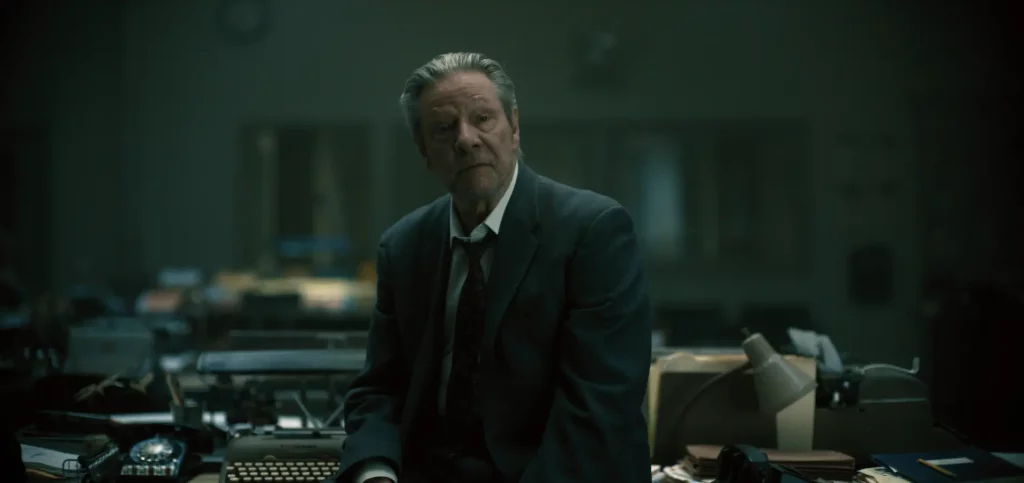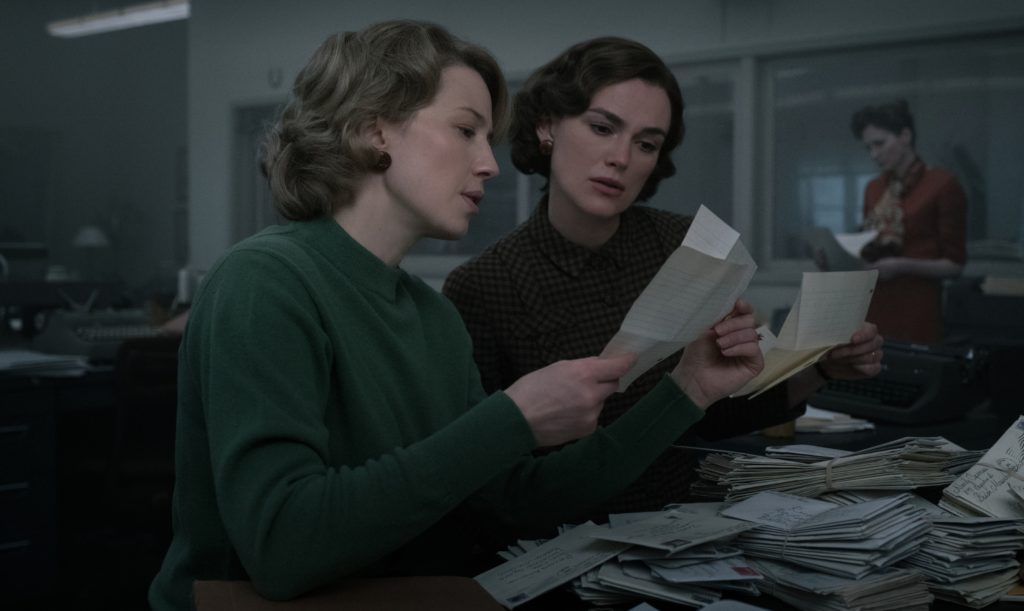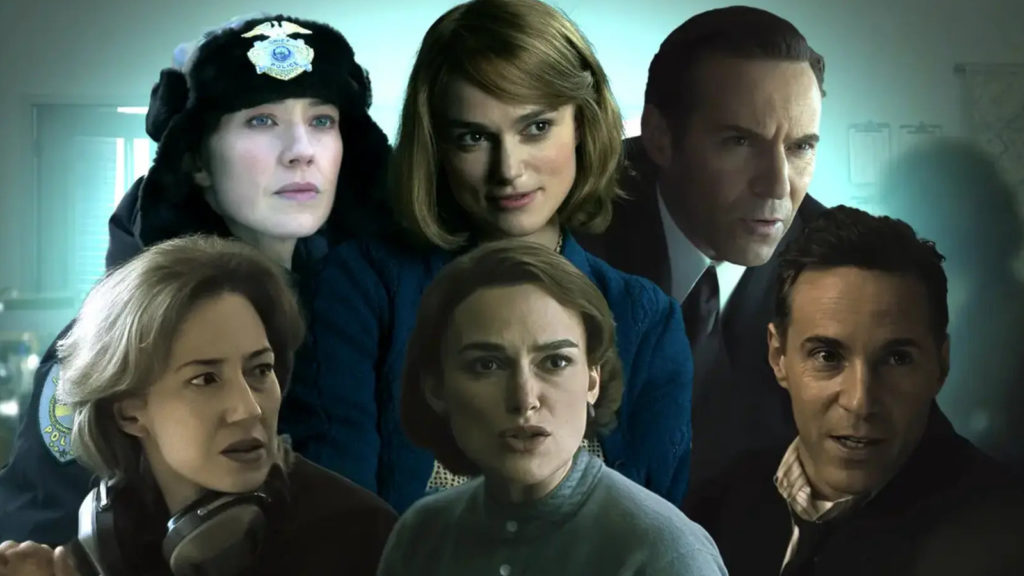No Rules in 'Fair Play'
Rules are nowhere to be seen in the harsh unfiltered reality of ‘Fair Play.’


“You can’t be apologetic. Not about the things that are important to you,” Jean tells Loretta about halfway into Boston Strangler, a film recently released on Hulu about the famed series of killings that occurred in Boston in the early 1960s.
Based on actual events, Loretta and Jean were two reporters who investigated and covered this brutal series of murders for the “Record American.” At the time, women journalists were relegated to fluff pieces and lifestyle features, covering fashion and reviewing household products like microwaves and toasters. Absurdly, men were granted the bulk of serious reporting while women were not given any assignments of great weight, and then socially punished for covering “vapid” topics.
Keira Knightley plays Loretta McLaughlin, a young journalist tired of being relegated to fad diets and profiles of wives of political candidates. She asks her editor, Jack (played by Chris Cooper), if she can tackle homicide. More specifically, the murder of three older women. She even offers to do it in her free time while still covering ‘lifestyle.’

We’re in a very dark world. Lots of grays, little coloring. Daylight that seems zapped of warmth and vitality. Think Seven or Zodiac. It’s very Fincher-esque. There are also many scenes of characters in dark corridors or silhouetted in door frames. Invoking secrecy and leaving many quite literally in the dark, searching for answers.
What is it about certain moody period pieces that often portray characters as sad and very pissed off, smoking cigarettes, lamenting the poor state of the world and its societal boundaries? As if this setting has to be a mean and unforgiving hell of sorts in order to spawn such mad, emotionally disturbed felons and sickos. It’s thinly veiled commentary. These movies often stress that things used to be a lot worse and you should be glad to be living in a time where people are ostensibly less miserable, and also less racist and homophobic. These depictions are effective and very compelling, but they are also a bit of a cliche.
I digress.
Loretta identifies a pattern. Specifically, each woman was strangled with one of their stockings tied in a bow around their neck, “like a gift.” Loretta is joined by Jean Cole (played by Carrie Coon) and the two are relentless in their reporting, going after local law enforcement for refusing to work collectively in order to track down the killer. In a city like Boston, these accusations have repercussions. Even with the help of a dedicated detective, Detective Conley, played by Alessandro Nivola, certain politics impede the investigation. There is a stranglehold on the press that keeps the women from covering the murders accurately. I was reminded of Spotlight, another film where establishments interfere with reporters and their responsibilities.

While the editors and local police clash over the reporting of these killings, the ‘Strangler’ continues his string of murders. These brief but effective scenes are deeply disturbing. I was reminded somewhat of Dahmer, a show that lost a lot of its more suspenseful elements to too much storytelling. Here, we see the killer only in shadow, knocking on doors, pretending to be a plumber or a recruiter of fashion models. There is no hiding the brutality of these murders nor the negligence of local authorities and state officials in tracking down those responsible.
The challenges of covering these grisly crimes force Jean’s exit. She steps away leaving Loretta to handle the brunt of the reporting. Bureaucracy comes into play, arrangements made between suspects’ lawyers and city prosecutors, muddying the case, making it only more difficult to identify the killer and/or killers.
Naturally, the case takes its toll on Loretta as well. Her husband disapproves of her involvement in the case. He exists to remind the central protagonist of her traditional responsibilities as a mother and how she’s “failed” them. It’s the underwritten role of the nagging domestic partner. Often it is the wife. Here it is the husband. Instead of chopping up vegetables hysterically in the kitchen, it is a man on the couch with some scotch, watching TV in the dark. It has a similar effect.

Boston Strangler is a good film. I feel like it would have been better as a mini-series. There is a lot of information on these infamous slayings worth exploring. Regardless, the picture is informative and from my understanding doesn’t stray too far from the truth.
At one point, Loretta and the “Record American” are accused of mythologizing the murderer, making it impossible to identify the culprit due to public hysteria and fervent demand to end the series of deaths. It’s a lesson on how things can unfold in the press and how stories occasionally function as self-fulfilling prophecies.
The performances are great. Specifically, Keira Knightley and Chris Cooper. It’s nice seeing Keira Knightley perform with an American accent. It’s unlike the British period films and Pirates pictures she’s most known for. Chris Cooper, as a disgruntled editor, works very well with Knightley. Their scenes together are very compelling. I enjoyed Carrie Coon’s performance as well.
Boston Strangler pulls the curtain back on a well-documented moment in history that involved significant contributions from women reporters. The film is grim, but Loretta and Jean show fearlessness and determination. They are unapologetic in their quest for the truth in a world dominated by men. Even in the bleakest and most horrible of circumstances, their characters are inspiring.
Related lists created by the same author
Rules are nowhere to be seen in the harsh unfiltered reality of ‘Fair Play.’
Related diversity category
Mean Girls not only centers around what goes on in high school, but also shows viewers and fans the diversity among people, especially teenagers, within today's society.
Related Movie / TV / List / Topic
Emma Stone (Estella and Cruella) and Emma Thompson (the Baroness) did not come to play around in Cruella. They embodied the perfect balance of sinister and sincere. Estella went through a great hero's journey, and what a journey it was!